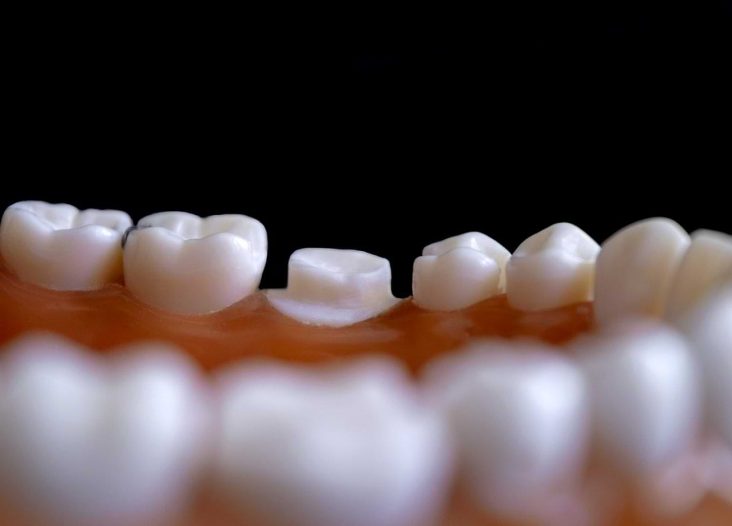Has your dentist spoken to you about dental bridges? Find out everything you need to know about this dental treatment below.
What Are Dental Bridges?
Dental bridges are a type of false teeth that are fixed permanently to your mouth. In a dental bridge procedure, the bridge is attached to the remaining teeth on either side of the gap. They can replace 1–3 missing teeth in a row and are a great alternative to dentures if the remaining teeth are healthy.
Dental bridges are usually made of porcelain, metal (or a combination of the two), or zirconia. With few associated downsides, they are among the most popular types of restorative treatments available today.
There are several types of dental bridges: the traditional dental bridge, the Maryland dental bridge, the cantilever dental bridge and the implant-supported bridge. This blog will focus on the traditional dental bridge, as it is the most common.
What Does a Dental Bridge Procedure Involve?
A dental bridge procedure will generally begin with an examination of the mouth to ensure that any tooth decay or gum disease has been treated. The dentist will then usually file down the two healthy teeth that sit either side of the gap and take a mould of the area. You may be given a temporary bridge while you wait for the permanent one to be made from the mould.
But how long does a dental procedure take? Well, the process will probably take a total of 1–2 hours, split over two separate sessions. Once your mould is ready, the bridge will be attached to the teeth surrounding the gap with dental cement, or anchored with dental implants.
Pros of Dental Bridges
1. Gives You Back Your Smile
Being self-conscious about your smile will leave you feeling insecure and unhappy in social situations. Front dental bridges are a great solution to this problem, as they are custom-made to fit your mouth exactly. Dental lab technicians will ensure that your dental bridge looks completely real and natural amongst your front teeth. Nobody will even know that you have a dental bridge fixed to your front teeth, and you will be free to speak, smile and laugh with confidence.
2. Prevent Surrounding Teeth from Shifting
When even a single tooth is missing, neighbouring teeth will automatically begin to shift towards the gap. This causes a domino effect, so that all the surrounding teeth will soon be shifting in ways that can cause further aesthetic and functional problems. Filling the gap with a dental bridge as soon as possible will prevent this from occurring.
3. Make Your Life Easier
Losing a tooth or two can impede your ability to chew and speak properly. Since they are perfectly fitted to your gap, dental bridges will help you to move your mouth as you did prior to losing any teeth. While you might want to avoid particularly sticky foods, there are no strict food restrictions associated with dental bridges.
4. Easy to Maintain
Dental bridges are fixed to your mouth, unlike dentures. A huge benefit of this feature is that the bridges themselves can be treated just like any other tooth. You can continue with your usual routine of brushing, flossing and visiting the dentist to keep your dental bridge in good shape for up to 15 years.
Cons of Dental Bridges
1. Could Put Healthy Teeth at Risk
The process of installing a dental bridge involves filing down the healthy teeth on either side of the gap. Other restorative solutions, such as dental implants, don’t require this step. There is also a risk that you could experience decay under an ill-fitting crown. However, your dentist will ensure that your bridge causes as minimal impact as possible.
2. Not as Comprehensive as Other Procedures
While standard or flexible dental bridges fill the gap, they don’t actually replace the tooth root or promote healthy bone density. Make sure to speak to your dentist about ways you can improve your oral health to help with these issues.
3. Not Guaranteed to Succeed
It is possible for the dental bridge to fail if the adjacent teeth aren’t strong enough to hold it in place. Additionally, if decay develops on neighbouring teeth due to a lack of hygiene, the entire bridge could be lost. This is unlikely, however, as your dentist will choose the best solution for you.
Overall, your chances of experiencing any of these issues are dramatically reduced when you visit a highly qualified dentist. For professional dentistry you can trust, call Abbotsford Dental today.
 201 Nicholson Street Abbotsford VIC 3067
201 Nicholson Street Abbotsford VIC 3067
